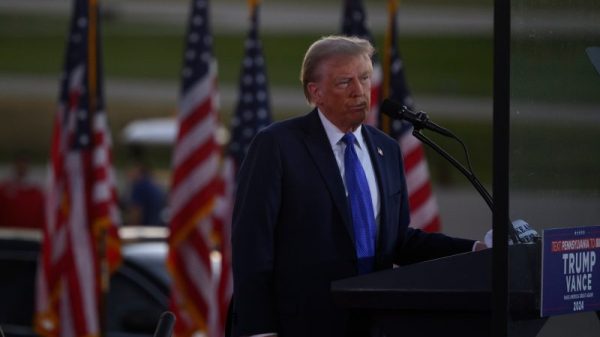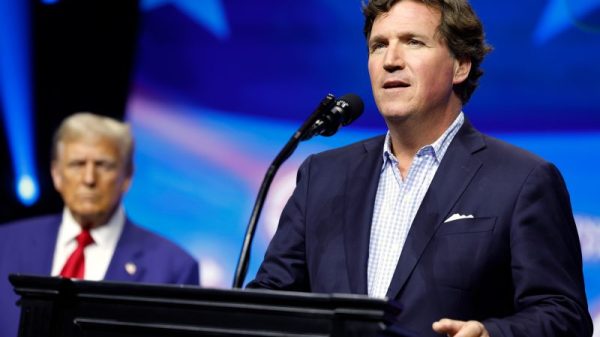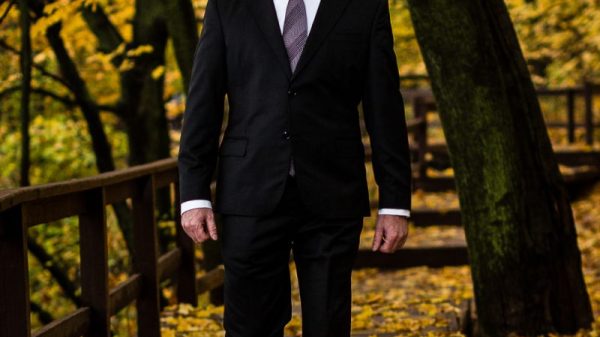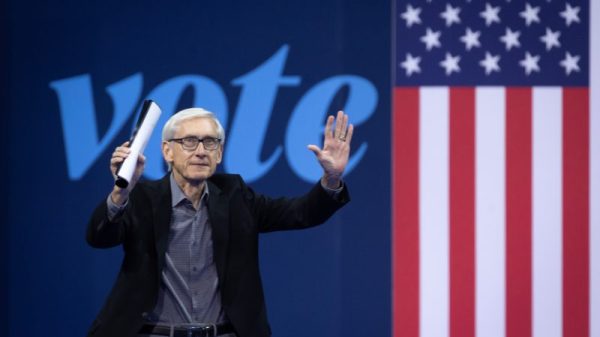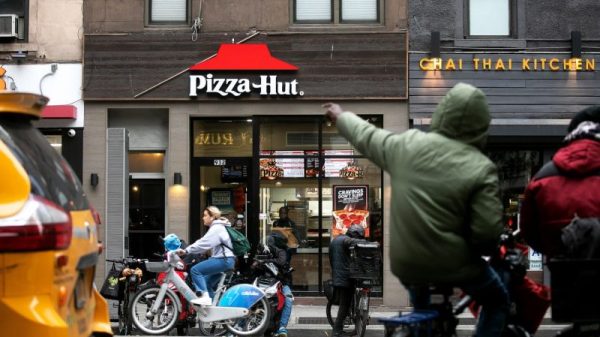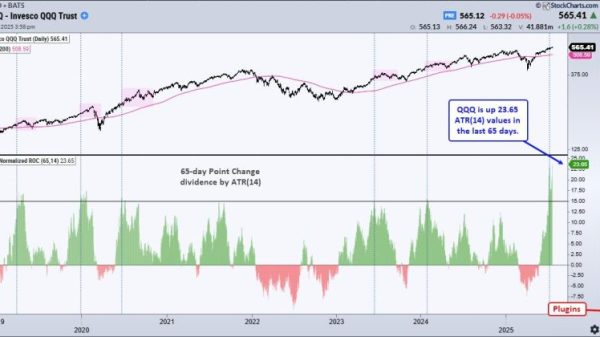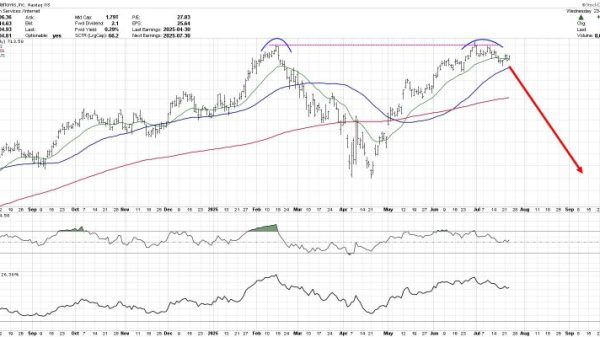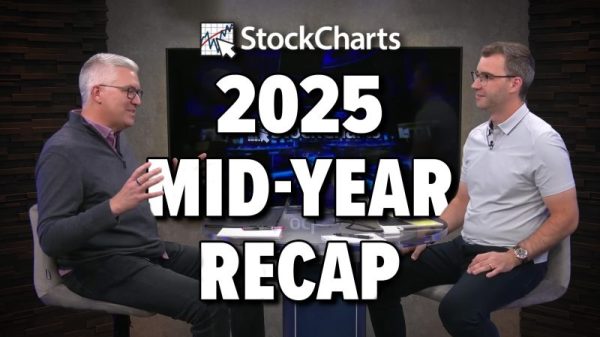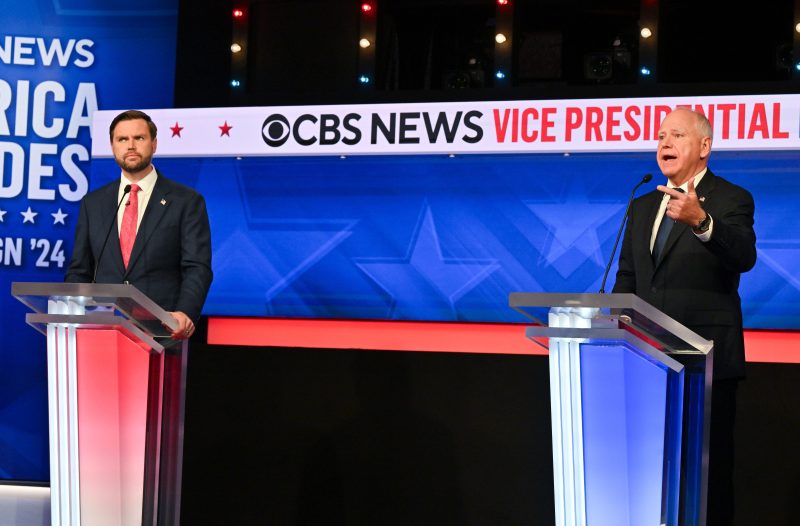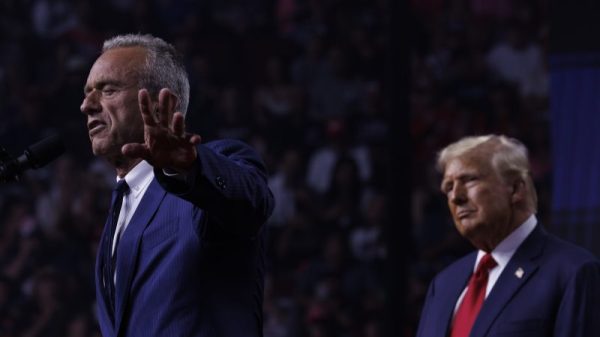NEW YORK — It was a political joust with a healthy side of Midwest nice.
Sen. JD Vance (R-Ohio) and Minnesota Gov. Tim Walz (D) shook hands twice Tuesday before the only vice-presidential debate of the cycle, exchanging broad smiles before repeatedly paying each other respect as they launched sustained and biting attacks on each other’s running mates.
In marked contrast to the September presidential clash between former president Donald Trump and Vice President Kamala Harris — who hardly concealed their disgust with each other — the running mates often went out of their way to be gracious, while focusing more on policy differences than personal slights.
They offered praise, sympathized and acknowledged that they agreed on how to address some of the country’s most vexing and divisive issues. At the same time, neither man shied away from the dirty work they had to do for their campaigns.
Vance referred to “our Democratic friends” even as he suggested that Harris had “enabled the Mexican drug cartels to operate freely in this country” and set the stage for the global instability that has sparked a widening war in the Middle East.
“Tim, I think you’ve got a tough job here because you’ve got to play whack-a-mole,” Vance said in an expression of sympathy before an attack. “You’ve got to pretend that Donald Trump didn’t deliver rising take home pay, which of course he did. You’ve got to pretend that Donald Trump didn’t deliver lower inflation, which of course he did. And then you simultaneously got to defend Kamala Harris’s atrocious economic record.”
Walz turned from the first question about the Middle East to argue that the nation doesn’t need “a nearly 80-year-old Donald Trump talking about crowd sizes” to solve the situation. He quoted Trump’s recent dismissal of the traumatic brain injuries sustained by U.S. troops during his presidency as “headaches.” And he chided Trump for conducting diplomacy on Twitter and for not paying federal taxes.
Walz followed up by criticizing Vance for repeating unsubstantiated claims that immigrants in the senator’s home state had been eating the pets of their neighbors, a claim that local officials say lacks evidence. He also said Trump had helped to scuttle a bill that would have solved the immigration problem, because he wanted to run on immigration reform.
“I believe Senator Vance wants to solve this, but by standing with Donald Trump and not working together to find a solution, it becomes a talking point,” Walz said. “And when it becomes a talking point like this, we dehumanize and villainize other human beings.”
Vance responded by suggesting that Walz is more sympathetic to the plight of native-born Americans than his running mate is. “I think you want to solve this problem, but I don’t think that Kamala Harris does,” he said.
In one of the sharpest exchanges of the debate, Walz directly asked Vance whether Trump had lost the 2020 election, a fact the former president has refused to admit.
“Tim, I am focused on the future,” Vance deflected.
“That is damning,” Walz said. “That is a damning non-answer.”
Tuesday’s debate may be the last direct confrontation between the major-party candidates in a race that remains effectively tied in the key battleground states. Harris, who entered the race in late July, has been calling for a second debate between her and Trump. The Republican nominee has refused.
Vance, 40, a first-term Republican senator, former U.S. Marine and best-selling author, cast himself before the debate as a fierce and defiant ideological bulldog — a leader of a new kind of conservatism pioneered by Trump. Walz, 60 — a former teacher and Army National Guard veteran who has held elected office since 2007 — has taken a more upbeat approach, rallying Democrats with an energetic “mind your own damned business” message while dismissing his Republican opponents as “weird.”
Both men acknowledged Tuesday night that they had misspoken in the past. Walz was asked to address his false claims about traveling to China during the Tiananmen Square massacre in 1989, despite only traveling to the country months later. In response, Walz said he could be a “knucklehead” and had spoken in error.
“I will talk a lot. I will get caught up in the rhetoric,” he said.
Vance also apologized for his past criticism of Trump, including once privately wondering whether Trump was “America’s Hitler” and comparing him to “cultural heroin.”
“I’ve also been extremely open about the fact that I was wrong about Donald Trump,” Vance said. “I was wrong, first of all, because I believed some of the media stories that turned out to be dishonest fabrications of his record. But most importantly, Donald Trump delivered for the American people.”
“I think there was a lot of commonality here,” said Walz later in the debate. “And I’m sympathetic to misspeaking on things.”
“Me too, man,” said Vance.
One of the only other truly contentious moments in the debate came when one of the moderators, Margaret Brennan, pointed out that the Haitian immigrants in Springfield, Ohio, falsely accused of eating pets are there legally under a Biden administration program. Vance objected.
“The rules were you weren’t going to fact check,” Vance responded, before speaking out of turn to argue that the Biden administration’s policy was not proper. After repeated requests that the debaters stop speaking out of turn, the moderators cut the microphones of the candidates and changed topics.
CBS News did not publicly announce that there would be no fact checking before the event. But the Harris campaign had been concerned about the debate rules, which read, “Moderators will seek to enforce timing agreements.” By contrast, the debate rules issued by ABC News for the Sept. 10 presidential debate said, “Moderators will seek to enforce timing agreements and ensure a civilized discussion.”
When the debate turned to abortion, Walz recounted horror stories of people unable to access abortion care, sometimes with deadly results, stressing that “Donald Trump put this all into motion.”
Walz also talked about how he and his wife, Gwen, needed fertility treatments to conceive their daughter and warned that similar procedures could be threatened by draconian abortion restrictions under Trump.
Abortion rights is a top issue for Harris’s campaign and the Democratic Party, particularly after the 2022 Supreme Court decision to overturn Roe v Wade. Harris and Walz have linked increased restrictions on abortion access to what they say is a pattern of Republican overreach into people’s everyday lives, dovetailing with Harris’s campaign theme: freedom.
Trump has bragged about selecting conservative Supreme Court justices who helped overturn Roe, but he has sought to distance himself from state bans that go further, or efforts to place federal restrictions on the procedure. Vance and Trump have also had crossed wires on the issue. In August, Vance said Trump would veto a national abortion ban if it passed Congress; Trump, during his debate with Harris, said he didn’t discuss a ban with Vance.
Vance said he had never called for a national abortion ban, though he has said he would like abortion to be illegal nationwide. He and said Trump’s stance is that a diverse array of states should have the ability to make their own decisions.
“We have a big country, and it’s diverse, and California has a different viewpoint on this than Georgia. Georgia has a different viewpoint from Arizona. And the proper way to handle this, as messy as democracy sometimes is, is to let voters make these decisions, let the individual states make their abortion policy,” Vance said.
But Walz said that Trump and Vance were trying to paint themselves as pro-family when they really support policies that are anti-woman.
“When we do a restoration of Roe that works best, that doesn’t preclude us from increasing funding for children,” Walz said. “It doesn’t increase us from making sure that once that child is born, like in Minnesota, they get meals, they get early-childhood education. They get health care.”
At one point, during a discussion of shootings in schools, Walz told a story about his own 17-year-old son witnessing a shooting at a community center while playing volleyball. Vance immediately offered his sympathy.
“I didn’t know that your 17-year-old witnessed the shooting, and I’m sorry about that,” Vance said. “Jesus have mercy.”
“I appreciate that,” Walz responded.
After closing statements, both men lingered onstage to exchange more friendly words and introduce their wives to each other.






